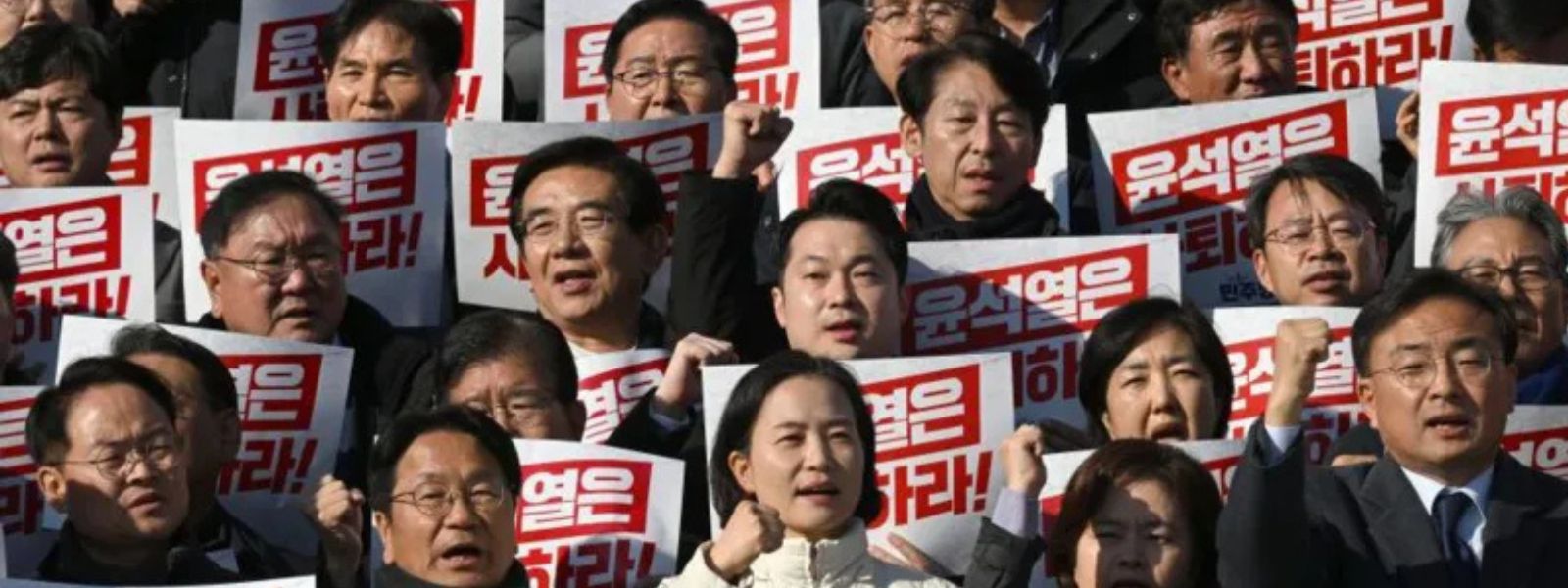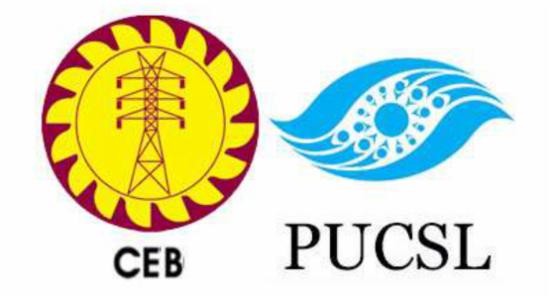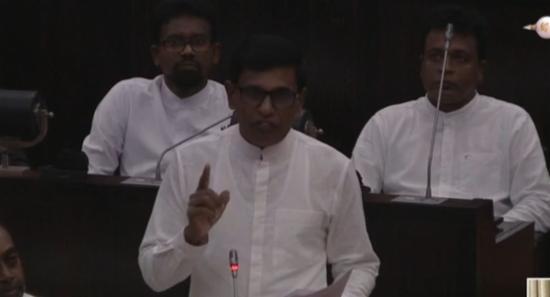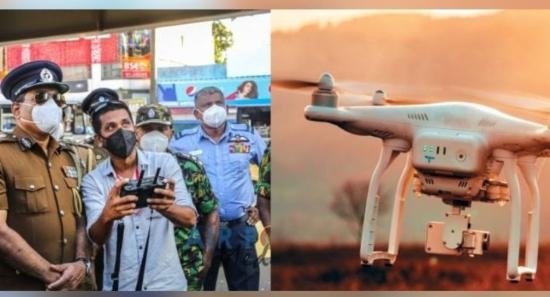.webp)

South Korea's Martial Law: What Happened?
COLOMBO (News 1st) - In a surprise late-night address yesterday, South Korean President Yoon Suk Yeol declared martial law, triggering widespread alarm and reviving painful memories of the country’s authoritarian past.
The declaration led to an attempted military presence inside the National Assembly, while protests erupted outside as people gathered to oppose the unprecedented measure.
Martial Law Declared Amid Political Tensions
Yoon's decision to impose martial law was a response to escalating political tensions, particularly with the opposition. The president accused the Democratic Party of Korea (DP), the largest opposition group, of sympathizing with North Korea and engaging in anti-state activities.
His remarks were centered on a motion by the DP, which holds a majority in parliament, to impeach top prosecutors and reject the government’s budget proposal.
The declaration sent shockwaves through the nation, with law enforcement informing the public that arrests could be made without warrants under martial law. As reports of the move spread, the country faced a wave of anxiety and uncertainty.
Parliament Rejects Martial Law
Just hours after Yoon's announcement, the South Korean parliament swiftly acted to reject the martial law declaration. A vote in the National Assembly saw 190 lawmakers opposing the measure.
Yoon's own political party, the People Power Party, also called for the decree to be rescinded.
Under South Korean law, the president is required to lift martial law if parliament demands it by a majority vote.
In a dramatic reversal, President Yoon announced today that he would lift the martial law order, backing down after the legislature roundly rejected his attempt to curtail political activity and censor the media. The move further escalated tensions between the executive and legislative branches of government.
Impeachment Bill Submitted
In the wake of the martial law declaration and subsequent retraction, the political fallout intensified. South Korean lawmakers, particularly from the opposition, have moved to take formal action against Yoon. The Democratic Party called for the president's resignation, accusing him of undermining democratic principles.
Six opposition parties united to submit an impeachment bill in parliament, with voting expected to take place on Friday or Saturday.
Defense Minister Offers Resignation
Minister of National Defense Kim Yong-hyun offered his resignation over his role in the martial law declaration. Kim, who had advised President Yoon to impose the measure, accepted full responsibility for the events that transpired.
In a statement, Kim expressed regret for the decision and clarified that all military mobilization during the martial law was conducted under his direction.
The Ministry of National Defense confirmed that Kim was the sole Cabinet member who supported the imposition of martial law, with all other ministers, including the prime minister, opposing the move.
The Democratic Party has called for his appearance at the Assembly defense committee for further questioning on Thursday.
**All details have been sourced from foreign media reports.
Other Articles
Featured News





.png )




-774725_550x300.jpg)
-774719_550x300.jpg)

-774560_550x300.jpg)




















.gif)